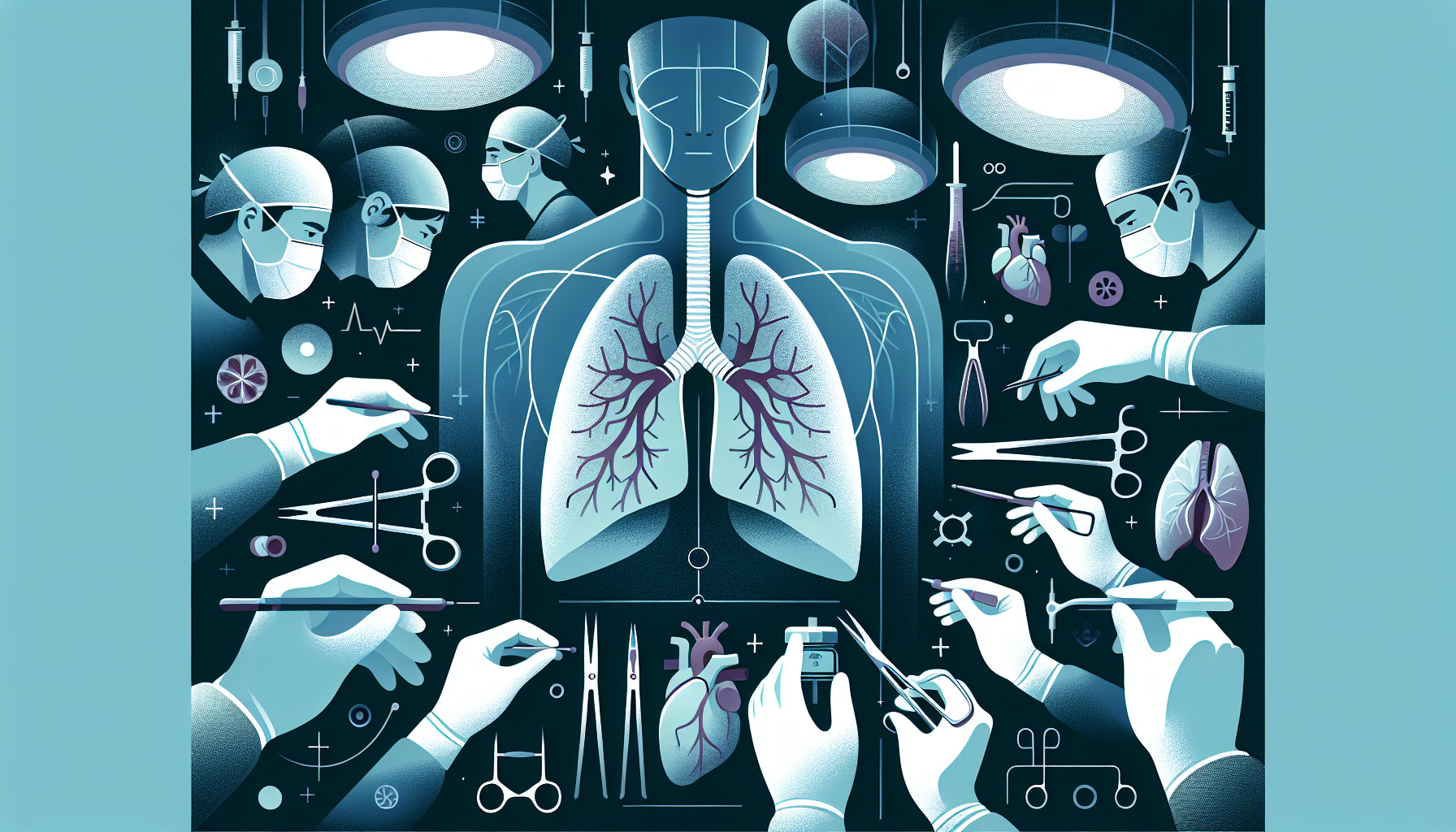Our Summary
This study looked at the effects of a common respiratory bacteria, Staphylococcus aureus, on people who have had lung transplants. The researchers wanted to see if the presence of this bacteria in the lungs at the time of transplant could lead to serious infections later on. They looked at lung transplant patients from 2008 to 2019 who had this bacteria in their lungs when they received their transplant.
Patients who died within two weeks of their transplant or who didn’t have a specific type of lung wash (bronchoalveolar lavage) two weeks after their transplant were not included in the study. The main thing the researchers were looking for was whether the bacteria was gone from the patients’ lungs two weeks after their transplant.
Out of 1,678 people who had a lung transplant, 218 had the bacteria in their lungs at the time of transplant. After excluding some patients for various reasons, 189 patients were left in the study. The researchers found that in 98.4% of these patients, the bacteria was gone from their lungs two weeks after their transplant. In the 12 weeks following their transplant, only 7.9% of these patients were diagnosed with a pneumonia caused by this bacteria. Only one patient had this bacteria in their bloodstream. No patients developed serious infections like lung abscesses or infections at the surgical site related to this bacteria.
In conclusion, the researchers found that this bacteria is generally eliminated from the lungs shortly after transplant and doesn’t often lead to serious infections. Most of the patients had received treatment with at least one antibiotic that works against this bacteria. More research is needed to determine the best antibiotic treatment plans for these patients.
FAQs
- What is the main focus of this study about lung transplants?
- What percentage of lung transplant patients had the Staphylococcus aureus bacteria in their lungs at the time of transplant?
- What were the findings of the study regarding the presence of the Staphylococcus aureus bacteria in the lungs two weeks after the transplant?
Doctor’s Tip
A doctor might advise a patient who has had a lung transplant to be aware of the potential presence of bacteria like Staphylococcus aureus in their lungs. It is important to follow up with regular check-ups and screenings to monitor for any signs of infection. Additionally, it is crucial to adhere to any prescribed antibiotic treatments to prevent serious infections. Continual communication with healthcare providers is essential to ensure proper management of post-transplant care.
Suitable For
Patients who are typically recommended for lung transplant are those with end-stage lung disease who have exhausted all other treatment options and have a significantly decreased quality of life. Common conditions that may lead to a lung transplant recommendation include chronic obstructive pulmonary disease (COPD), cystic fibrosis, pulmonary fibrosis, and pulmonary hypertension.
In this study specifically, patients who had Staphylococcus aureus in their lungs at the time of transplant were included. This bacteria is known to cause infections in the lungs, especially in immunocompromised individuals such as those who have had a transplant. The researchers wanted to determine if the presence of this bacteria at the time of transplant could lead to serious infections post-transplant.
Overall, the study found that the majority of patients had the bacteria eliminated from their lungs shortly after transplant and did not develop serious infections related to it. This suggests that patients with this bacteria in their lungs at the time of transplant may still be considered for a lung transplant, but may require careful monitoring and appropriate antibiotic treatment post-transplant. Further research is needed to determine the best treatment strategies for these patients.
Timeline
Before lung transplant:
- Patient undergoes extensive evaluation to determine eligibility for transplant
- Patient is placed on a waiting list for a donor organ
- Patient may experience worsening symptoms and decline in lung function
- Patient may require supplemental oxygen or other interventions to manage symptoms
After lung transplant:
- Patient undergoes surgery to receive new lung(s)
- Patient is closely monitored in the hospital for complications and signs of rejection
- Patient may require intensive care and rehabilitation post-transplant
- Patient will need to take immunosuppressant medications for life to prevent rejection
- Patient will have regular follow-up appointments and monitoring to ensure the success of the transplant
- Patient may experience improved lung function and quality of life, but will still need to manage potential complications and side effects of transplant medications.
What to Ask Your Doctor
- What are the potential risks and complications associated with having Staphylococcus aureus in my lungs at the time of transplant?
- Are there any specific precautions I should take to minimize the risk of infections related to this bacteria post-transplant?
- What are the signs and symptoms of a potential infection caused by Staphylococcus aureus that I should be aware of?
- How will my medical team monitor and treat any potential infections related to this bacteria following my transplant?
- Are there any specific antibiotics or treatment strategies that are particularly effective against Staphylococcus aureus in lung transplant patients?
- Will I need to undergo any additional testing or procedures to ensure that the bacteria has been eliminated from my lungs after the transplant?
- How often should I follow up with my medical team to monitor for any signs of infection or complications related to Staphylococcus aureus?
- Are there any lifestyle changes or precautions I should consider to reduce my risk of developing infections post-transplant?
- What are the long-term implications of having had Staphylococcus aureus in my lungs at the time of transplant on my overall health and transplant success?
- Are there any ongoing research studies or clinical trials that I may be eligible to participate in to further investigate the effects of this bacteria on lung transplant patients?
Reference
Authors: Al-Ahmadi G, Kothari S, Almarhabi H, Bosaeed M, Rotstein C. Journal: Cell Transplant. 2023 Jan-Dec;32:9636897231182480. doi: 10.1177/09636897231182480. PMID: 37452563
